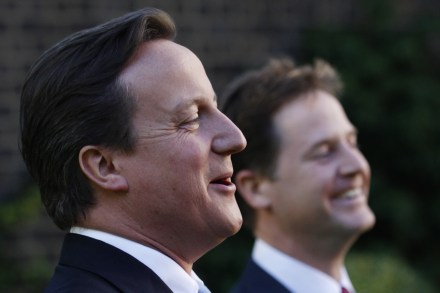The Liberal Unionist Club
Welcome to the Liberal Unionist club, Fraser! It won’t surprise regular readers that I think your latest post is spot-on. While we’re taking names, let’s also add John Rentoul to the list. His Independent on Sunday column this week concludes: This is where I think that Cameron is misunderstood. It seems to be generally assumed that, for him, the coalition is flag of convenience, hoisted to help navigate out of the tricky situation produced by the election. I think not. I think he sees it as a chance for a permanent change in favour of liberal conservatism, a label he has always been happy to apply to himself. The coalition













